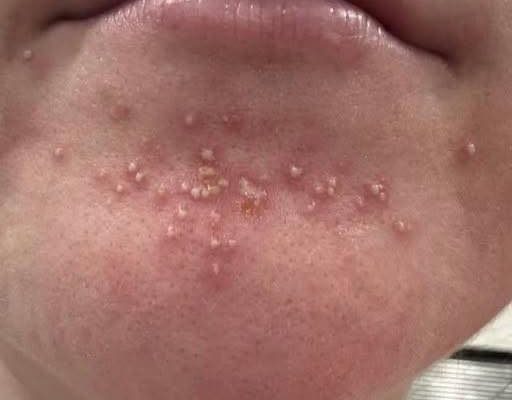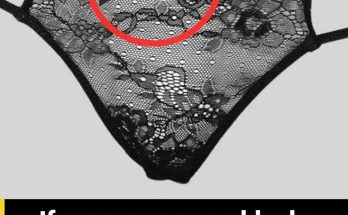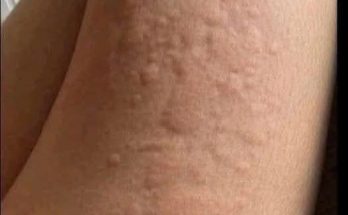After a long day—especially one filled with errands, visits with the grandkids, or a well-deserved evening out—it’s easy to feel tempted to crawl into bed without washing your face. For many, sleeping with makeup on might feel like a harmless little slip. But for older adults, this small habit can quietly chip away at both your skin health and vision over time.
If you’ve ever told yourself, “It’s just one night,” you’re not alone. But experts in dermatology and eye health strongly urge against going to bed with makeup still on your face. And if you’re in your 60s or beyond, the risks grow more serious—not just in appearance, but in lasting health impacts.
From clogged pores and breakouts to eye infections and premature aging, the damage of skipping your evening cleanse goes far deeper than smudged mascara. Here’s what you need to know—and how to break the habit for good.
1. Clogged Pores and Breakouts Are More Than Just a Nuisance
As we age, our skin becomes thinner, drier, and less resilient. Unlike in our younger years, the skin doesn’t bounce back as quickly after irritation. That’s why sleeping in foundation, concealer, blush, or powder can be especially harmful for seniors.
Makeup traps oil, dirt, and pollutants against the skin—blocking your pores and throwing off your skin’s natural nighttime repair cycle. When pores are clogged overnight, they can turn into blackheads, whiteheads, or full-blown breakouts.
And yes, breakouts can and do happen in later life.
According to the American Academy of Dermatology, one of the leading causes of adult acne is poor nighttime cleansing. Even gentle makeup can carry bacteria and environmental toxins that inflame aging skin. If you’ve noticed bumps or roughness that wasn’t there before, your nightly makeup habits might be to blame.
2. Premature Aging: Makeup Can Speed Up Wrinkles and Skin Sagging
Our skin does most of its healing while we sleep. That’s why a solid nighttime routine is one of the best anti-aging skincare strategies you can follow.
When makeup is left on overnight, it prevents skin from performing that critical work. Worse, makeup residue combines with environmental toxins and pollution—creating free radicals that break down collagen, the protein responsible for firm, youthful-looking skin.
Collagen production already slows with age. When you add in overnight damage from free radicals, your skin becomes more prone to fine lines, deep wrinkles, and a dull, tired complexion.
In short: leaving makeup on overnight can fast-forward the signs of aging.
3. Eye Infections: A Serious Concern for Seniors
While most people think about makeup’s impact on their skin, few realize the serious dangers it poses to eye health—especially for older adults.
Waterproof mascaras and long-wear eyeliners are designed to stick around. But when they aren’t removed properly, tiny particles can migrate into the eye while you sleep. This increases your risk of:
Conjunctivitis (pink eye)
Styes, which are painful and hard to treat
Irritated, red, watery eyes
Ingrown eyelashes
Chronic eye allergies
Perhaps most disturbing is the true story of a 50-year-old woman in Australia. After years of falling asleep in mascara, she developed hard, black lumps—called concretions—under her eyelids. These painful deposits required surgery and left permanent scarring inside her eyes. Doctors warned that if left untreated, she could have lost her vision.
For older adults, who are already more prone to dry eyes, inflammation, and vision loss, this type of damage can become life-changing. Regular makeup removal isn’t just about looking good—it’s about protecting your eyesight.
4. Brittle, Thinning Eyelashes
Your eyelashes are more delicate than they look. And they serve an important role: protecting your eyes from dust, bacteria, and debris.
When mascara is left on overnight, it hardens and dehydrates the lashes, making them brittle and weak. Over time, this can lead to thinning lashes, hair loss at the lash line, and even irritation at the follicle that invites infection.
This risk is even greater for those who regularly wear waterproof mascara, which can build up if not fully removed. Once lashes become thin or start falling out, it can be difficult to regrow them—especially in your 60s and beyond.
5. Dull, Flaky, and Irritated Skin
Your skin is constantly shedding dead cells and creating new ones. But makeup left on overnight slows this process, creating a buildup that leaves your face looking dry, dull, and uneven.
For those with conditions like rosacea, eczema, or sensitive skin (common among older adults), sleeping in makeup can worsen flare-ups and delay healing. Instead of a soft glow, your skin may feel rough, tight, and itchy.
If you’ve noticed increased dryness or redness, your nighttime habits could be a contributing factor.
What Experts Recommend for Safe Makeup Removal
You don’t need an expensive 12-step routine. Just a few mindful steps can protect your skin and eyes for years to come.
1. Use a gentle makeup remover.
Micellar water, cleansing oil, or soft wipes can help break down even waterproof makeup. Avoid anything too harsh or heavily scented, as older skin tends to be more sensitive.
2. Double cleanse for better results.
After removing makeup, use a mild, water-based cleanser to wash away any residue. This two-step process ensures your skin is completely clean and ready to repair itself overnight.
3. Pay special attention to your eyes.
Use a separate remover for eye makeup. Soak a cotton pad and gently press against your closed eye for a few seconds before wiping. Never scrub or tug at the skin—this can lead to wrinkles and lash loss.
4. Keep makeup remover near your bed.
If you often forget or feel too tired, stash makeup wipes or micellar water on your nightstand. Even a quick cleanse is better than nothing at all.
5. Follow up with moisturizer.
Night is the best time to hydrate and treat your skin. After cleansing, apply a moisturizer (or serum) that suits your skin’s needs—whether that’s extra hydration, brightening, or firming.
Why We Skip Makeup Removal—and How to Stop
Many people skip removing makeup simply because they’re exhausted or don’t think it matters. In fact, a survey once found that nearly 1 in 3 women admitted to sleeping in their makeup at least twice a week.
But what starts as an occasional lapse can turn into a habit—and the long-term damage may not show up right away. The truth is, consistent makeup removal is one of the easiest and most affordable ways to keep your skin and eyes healthy as you age.
Common Myths—And the Truth
“It’s just one night, it won’t hurt.”
Even one night can lead to clogged pores, red eyes, or skin irritation—especially if you already have sensitive or aging skin.
“Natural or organic makeup is fine to sleep in.”
While it may be less irritating than synthetic formulas, all makeup—regardless of ingredients—should be removed before bed. Natural products can still clog pores or cause buildup.
“Setting spray keeps it clean.”
Setting spray helps makeup last, not stay sanitary. No spray can prevent your skin from absorbing pollution, sweat, or oils throughout the day.
Make Makeup Removal a Nightly Ritual of Self-Care
Taking two to five minutes at night to remove your makeup isn’t just about beauty—it’s about protecting your skin and safeguarding your vision. In our 60s and beyond, these small habits have a bigger impact than ever.
By being intentional with your skincare, you can help prevent:
Breakouts and skin irritation
Premature aging and dullness
Painful eye infections
Eyelash thinning and vision risks
Your skin has served you well all these years. Treat it with the care it deserves—every night, without exception.



